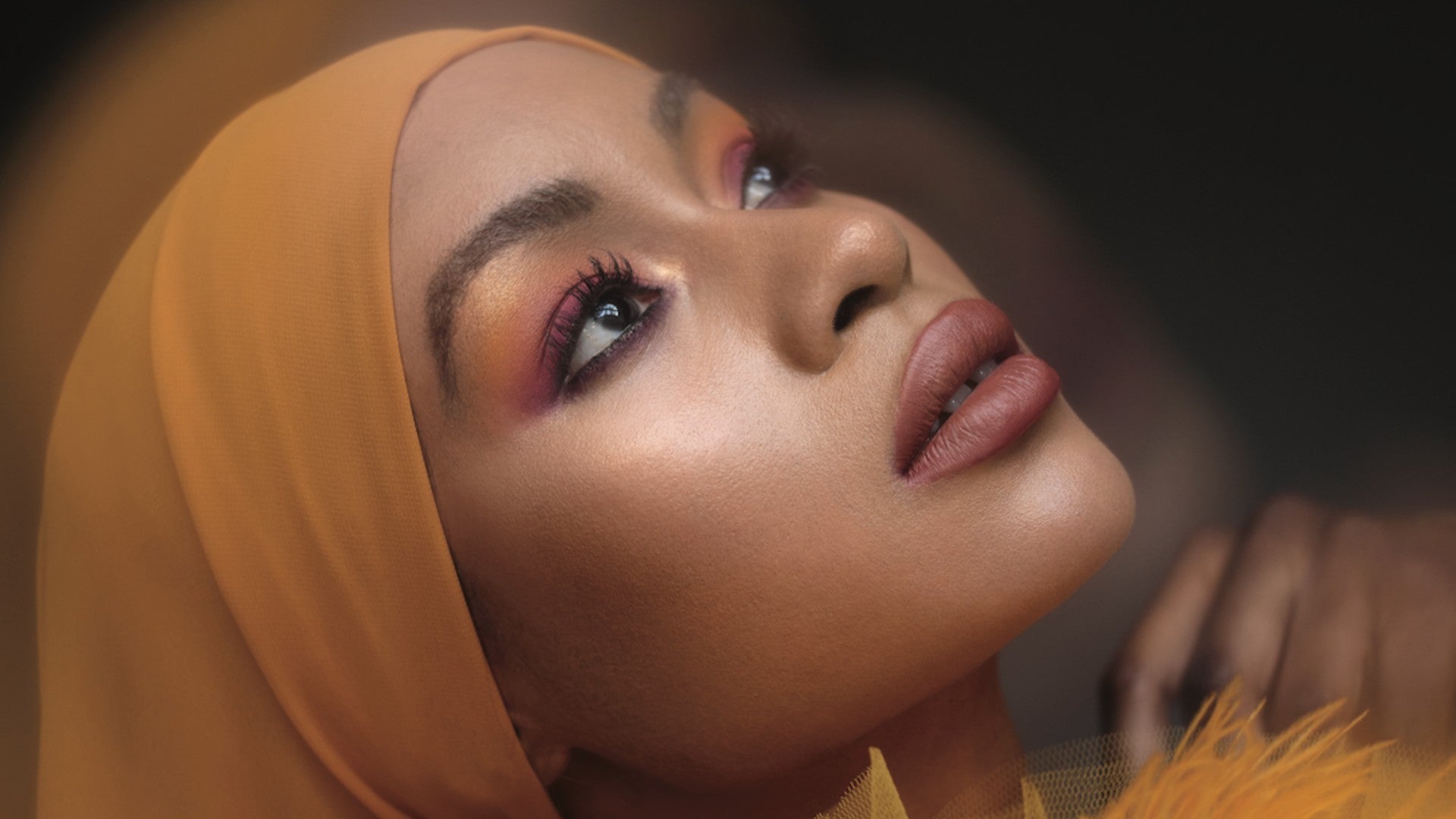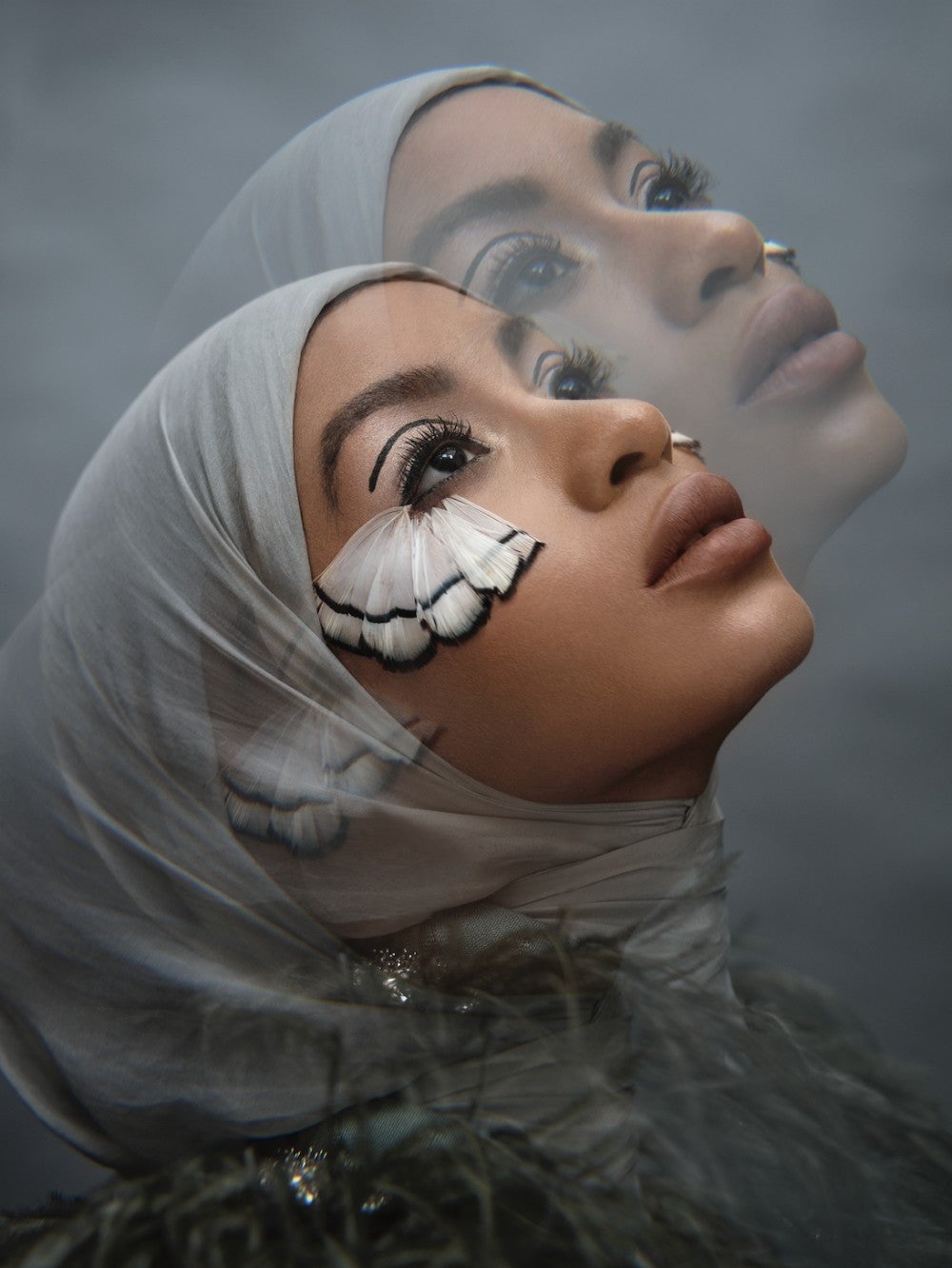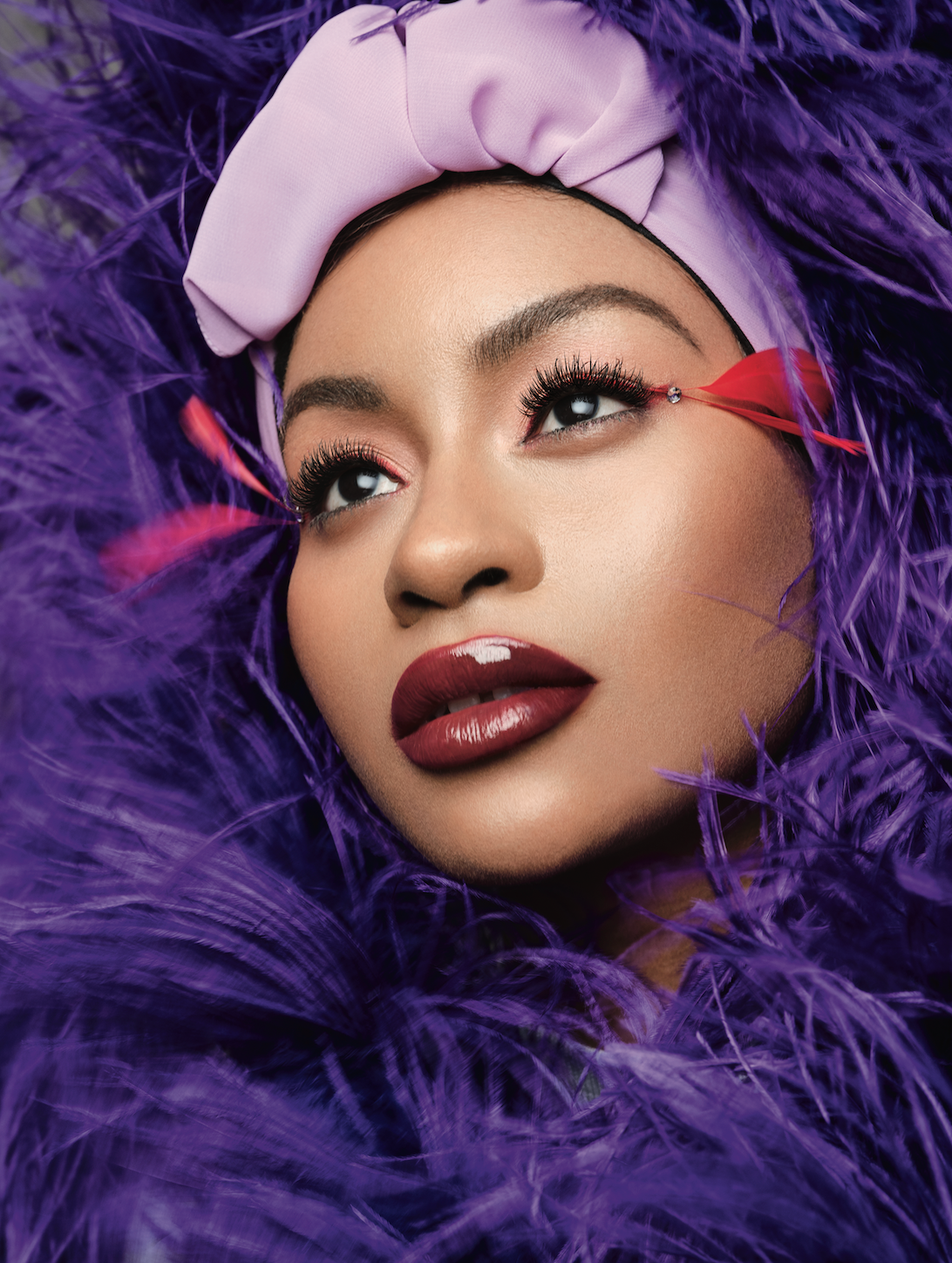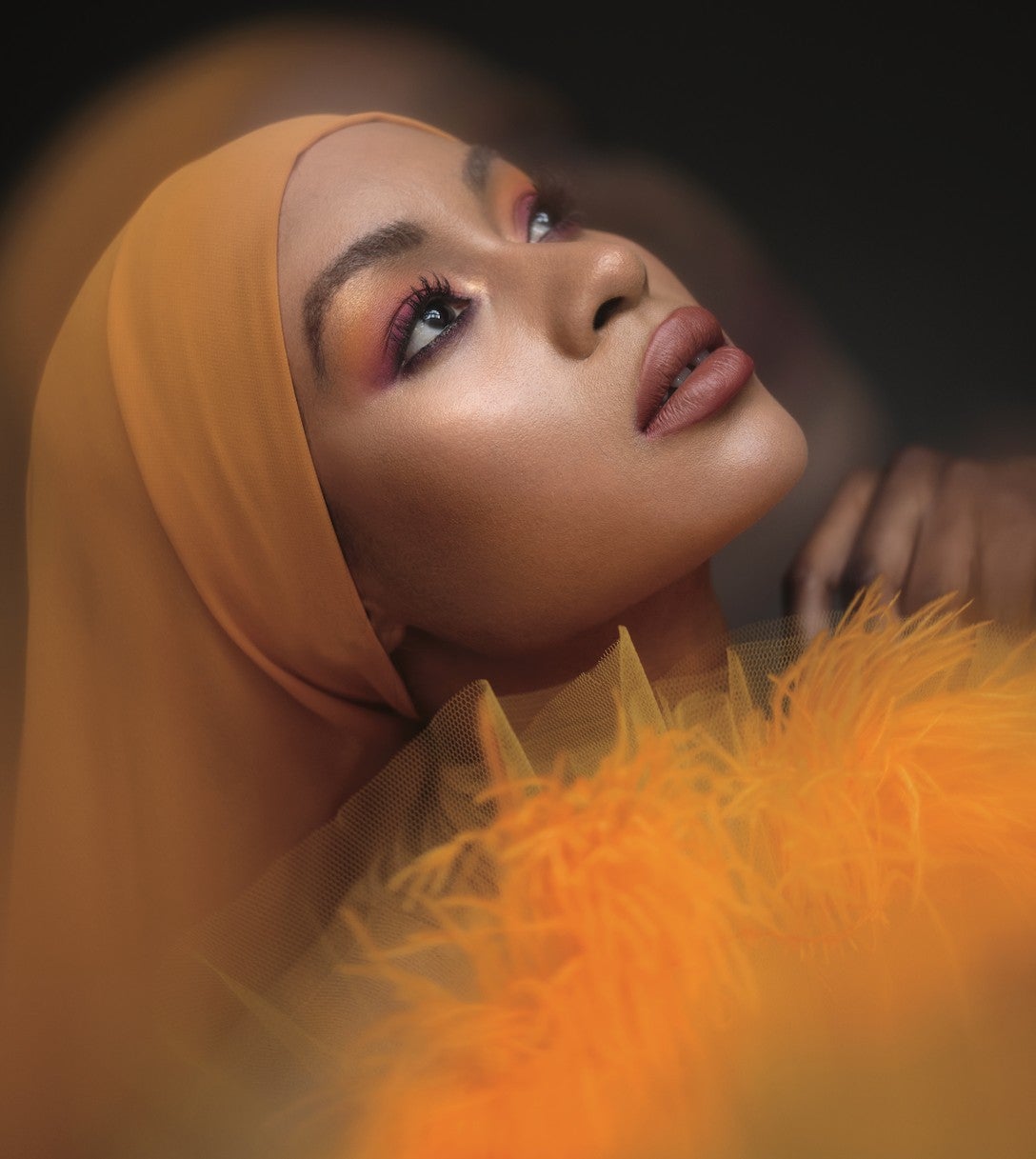
The road to modeling was far from easy for Kadija Diawara. Born in the Ivory Coast and raised in Egypt until her family immigrated to the United States when she was 6, Diawara has been through some challenging times. She considers all of it part of the mix that has made her into the woman she is today.
Growing up in New Jersey as a Muslim with a large immediate family (14 brothers and sisters) and parents who didn’t speak English—she spoke only the West African language Bambara when she first arrived—she had an uphill battle. She recalls living in a small house that had no lights or heat, where the family showered with rainwater they caught in buckets, and her mother cooked their food outside on a charcoal grill.
Today Diawara’s world looks much different. Her two older sisters, who had no basic education when they came to the U.S., are now professionals in pharmacology and neurology, and her little sisters, who were born here, are social media savvy and deeply entrenched in American culture. Her days are filled with photo shoots, go-sees and playing dress-up for designers.
When she’s not doing that, the self-proclaimed science nerd is working her side hustles and studying. She has become a cross-cultural ambassador of sorts for her family, embodying both Muslim tradition and modern American culture. And in the modeling world, she’s recently piqued the interest of many designers and brands—and not just because she’s wears a hijab.
An early breakout talent for her agency with lots of hype around her work, Diawara was one to watch. After jobs with clients such as Adidas and Pyer Moss, she was on the rise. Then she plateaued, learning firsthand the old saying that in the fashion industry, one day you’re in, the next day you’re out. Now signed to a new agency, she is having a resurgence, giving the introspective beauty a chance to redefine who she wants to be.


She’s starting off the season playing with some of the hottest beauty colors and one of the boldest trends we’ve seen in years: feathers. Wearing a head covering also offers a unique advantage: All face means all beauty all the time—a makeup artist’s dream. Diawara owns it. Her excitement for bold eye makeup is tangible. As she moves from a sunset look to a warm metallic eye to a strong geometric liner paired with feather lash accents—and even eyes surrounded by an array of black and white feathers—her persona adapts.
“When you’re used to your hair being out, like when you’re at home, there are different shadows that play on your face,” she says. “But when your head is covered, it’s just you—you’re all face. So I definitely play up my eyes. I don’t do mascara as much as I used to, but I do eyeliner when I need to, and I can’t live without concealer and blush.”
But the twenty-something is more than just a Muslim model with a covered head. She wants her presence to be more powerful than that. She intends for her contribution to be impactful so that a model in a hijab or burkini or wheelchair isn’t groundbreaking, it’s the norm.

“Hijabis in fashion and beauty are an amazing thing. I think it helps to increase inclusivity and shows that we can coexist in a culture that goes beyond stereotypes of what people think we are,” she says. “But my agenda isn’t solely hijabi. I would advocate for it, but at the same time that’s not my main stance. I’m here as a depiction and representation of the kind of inclusivity that transcends fashion.”





